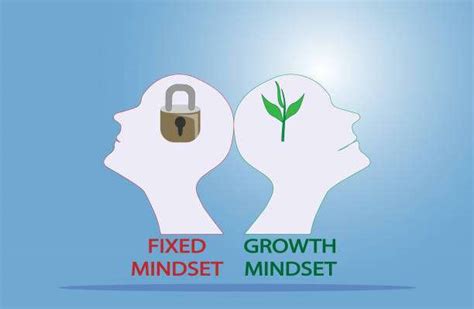The Hidden Link Between Your Wallet and Your Workout
It might seem like financial discipline and fitness consistency are two separate challenges, but at their core, they often share a common enemy: procrastination. Whether it’s putting off creating a budget or skipping a planned workout, the underlying psychological hurdles – fear, overwhelm, lack of motivation, or a focus on instant gratification – are remarkably similar. Overcoming these isn’t just about willpower; it’s fundamentally about cultivating the right mindset.
Many aspire to financial freedom and a healthy lifestyle, yet struggle to translate those aspirations into consistent action. This article will explore practical strategies and mindset shifts that can help you break the cycle of procrastination in both areas, fostering lasting change and well-being.

Unpacking the Roots of Procrastination
Before we can overcome procrastination, we must understand its origins. In both finance and fitness, common culprits include:
- Fear of Failure or Success: What if my budget fails? What if I can’t stick to the workout plan?
- Overwhelm: The task seems too big. Where do I even start with my finances or a new fitness routine?
- Lack of Clear Goals: Without specific, measurable objectives, it’s easy to drift.
- Perfectionism: Waiting for the ‘perfect’ time or the ‘perfect’ plan, which never comes.
- Instant Gratification: Choosing immediate comfort (spending now, relaxing) over long-term benefits (saving, exercising).
Recognizing these patterns is the first step toward breaking free from them.
Conquering Financial Procrastination: Practical Steps
1. Set SMART Financial Goals
Define what you want to achieve financially – e.g., ‘Save $500 for an emergency fund by the end of this quarter.’ Make it Specific, Measurable, Achievable, Relevant, and Time-bound.
2. Automate Your Savings and Investments
Remove the decision-making process. Set up automatic transfers from your checking account to your savings or investment accounts immediately after you get paid. If you don’t see the money, you’re less likely to spend it.
3. Break Down Big Tasks
Instead of ‘creating a budget,’ start with ‘list all monthly expenses.’ Then, ‘categorize expenses.’ Then, ‘find one area to cut back.’ Small wins build momentum.
4. Track Your Spending Mindfully
Use an app, spreadsheet, or notebook to monitor where your money goes. Awareness is a powerful catalyst for change. Don’t judge, just observe.

Building Fitness Consistency: Strategies for Lasting Habits
1. Find Your Joy in Movement
If you hate running, don’t run. Explore dancing, swimming, hiking, yoga, cycling, or team sports. Fitness should be an enjoyable part of your life, not a chore.
2. Start Small and Build Gradually
Don’t jump into an hour-long intense workout if you’re new. Begin with 15-20 minutes of moderate activity, three times a week. Consistency trumps intensity in the long run.
3. Schedule Your Workouts
Treat your exercise appointments like important business meetings. Block out the time in your calendar and commit to it. Make it a non-negotiable part of your day.
4. Focus on How You Feel
Shift your focus from purely aesthetic goals to how exercise makes you feel – more energetic, less stressed, stronger, clearer-headed. These intrinsic rewards are powerful motivators.

The Mindset Overhaul: Unlocking Your Potential
The true key to overcoming both financial and fitness procrastination lies in cultivating a resilient mindset:
- Embrace a Growth Mindset: See setbacks not as failures, but as learning opportunities. Did you overspend? Learn from it, adjust, and move forward. Did you miss a workout? Don’t give up; just get back on track with the next one.
- Practice Self-Compassion: Be kind to yourself. Perfection is unattainable. Acknowledge your struggles without letting them define you.
- Cultivate Delayed Gratification: Understand that the greatest rewards often come from consistent, long-term effort, not instant pleasure. Visualize your future healthy and financially secure self.
- Develop a ‘Done is Better Than Perfect’ Attitude: A small workout is better than no workout. A basic budget is better than no budget. Action, however imperfect, is always better than inaction.

Integrating Your Journey: Holistic Well-being
It’s important to recognize that your financial health and physical health are interconnected. Financial stress can negatively impact your mental and physical well-being, while a lack of energy or poor health can hinder your ability to focus on financial planning. By tackling procrastination in one area, you often build confidence and discipline that spill over into the other.
A strong mindset, characterized by discipline, self-awareness, and resilience, serves as the foundation for success in both domains. As you develop healthy habits in one area, you strengthen the neural pathways that support consistency and goal achievement across your entire life.
Conclusion: Your Path to a Disciplined Life
Overcoming financial procrastination and building fitness consistency are not about drastic overhauls, but about consistent, small steps powered by a strategic mindset. By understanding the root causes of your inaction, setting clear goals, automating processes, finding joy in the journey, and cultivating self-compassion, you can transform your relationship with both your finances and your physical health.
Start today. Pick one small action in each area – perhaps review one bank statement and go for a 15-minute walk. The journey of a thousand miles begins with a single step, and with the right mindset, that step can lead to a lifetime of financial security and vibrant health.





